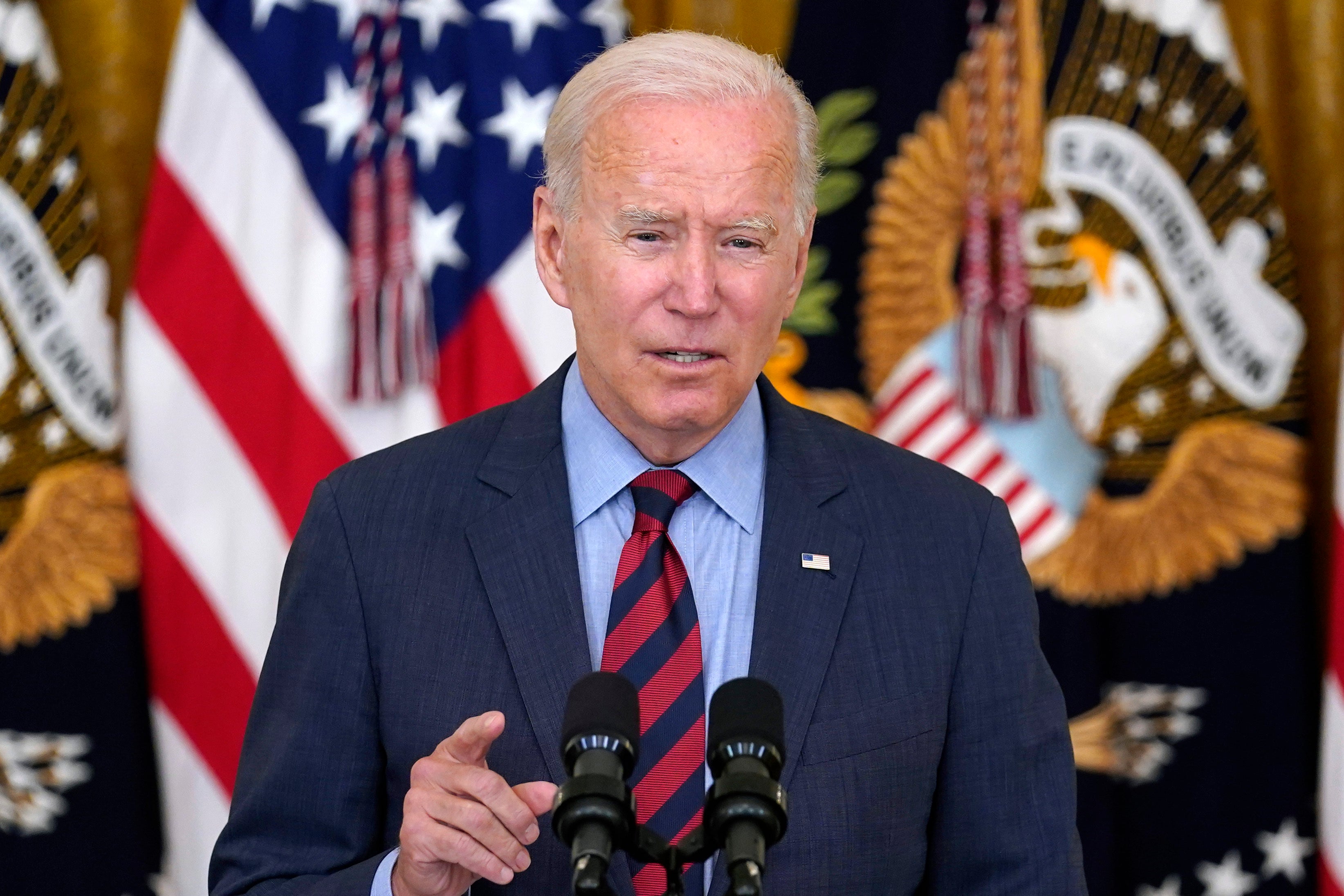Biden needs to swallow his pride and take the win in front of him
He can try to get both infrastructure bills passed at the same time before the summer recess. But that would involve clearing Congress in a partisan fashion using budgetary gimmicks to get it done — and the effort might not be worth it


President Joe Biden has a chance to do something almost unheard of in the era of bitterly divided politics.
When the Senate voted to open debate on the nearly $1 trillion infrastructure package, 17 Republicans, including Senate Minority Leader Mitch McConnell, voted with Democrats to advance the legislation. However, the bill must clear several hurdles before final passage, and its fate in the House is still uncertain.
The president has a chance for an impressive bipartisan win in his first year, and it’s one he should urge his fellow Democrats to take.
At issue is another spending package that progressive Democrats have championed along with the president. A $3.5 trillion bill dubbed “human infrastructure” includes spending for long-term elderly care, universal pre-kindergarten, subsidized childcare, free community college, national paid family leave, extended child tax credits, and expanded Medicare coverage.
With zero chance of Republican support of the $3.5 trillion spending bill, Democrats would have to rely on a budgetary procedure called reconciliation to allow passage in the Senate on a party-line vote, skipping the typical 60-vote threshold.
House Speaker Nancy Pelosi warned she would not consider the bipartisan bill unless the House votes on the reconciliation package. Other House Democrats, including Alexandria Ocasio-Cortez, said progressives are willing to vote against the bipartisan infrastructure bill unless it’s coupled with the reconciliation bill.
So while the bipartisan legislation gives the president a golden opportunity, it also presents him with a fraught political landscape. Several weeks ago, hours after Biden announced the bipartisan framework, he agreed with Pelosi on passing the two bills together. The backlash was fierce, particularly from Republicans who disagreed, and Biden quickly backtracked.
And now, Biden has many political landmines to navigate around to get the infrastructure bill signed. Arizona Senator Kyrsten Sinema recently said she opposes the price tag of the reconciliation bill. And some moderate House Democrats said they would not vote for the reconciliation bill unless Pelosi committed to holding a vote on the bipartisan bill.
The president doesn’t have the benefit of a substantial majority in either Congressional chamber. The Senate “majority” is 50-50, with Vice President Kamala Harris there to break any ties. In the House, the Democratic majority is slim. It would take only four Democrats to block action on a budget resolution that would contain the reconciliation instructions for committees to draft the $3.5 trillion spending bill.
At the same time, if House Republicans were united in opposition to the infrastructure bill (despite GOP support in the Senate), it would only take a handful of progressive Democrats in the House to vote with their Republican counterparts and scuttle it.
Biden clearly understands the necessity of getting something done before Congress departs for the summer recess. As 2022 approaches and the midterm elections gear up, Congressional members will focus more on their re-election efforts, particularly in the House. Biden knows of the difficulty of getting anything done, even in a midterm election year. If the GOP manages to win control of the House, all ambitious legislative agenda is dead in the water.
The president is also mindful of the necessity of maintaining a healthy relationship with some Republicans in the Senate. Of the 17 Senators who voted to advance the bipartisan bill, three are retiring in 2022, including Roy Blunt of Missouri, Rob Portman of Ohio, and Richard Burr of North Carolina. And while 17 voted to advance the legislation for debate, that’s not a guarantee all of them will vote on final passage.
As someone who worked in the Senate chamber, Biden is all too familiar with the give-and-take machinations of getting legislation passed and signed into law. So while he is on board with the $3.5 trillion reconciliation bill, it’s the infrastructure bill he wants more than anything else as he campaigned on it last summer during his presidential campaign.
He can go for broke and try to get both bills passed at the same time. However, he’ll likely only wind up with the larger spending package that will clear Congress in a partisan fashion using budgetary gimmicks to get it done.
He has a much better chance of getting a $1 trillion infrastructure bill done that comes with the added benefit of bipartisan support. So he should take that win and call it a day.
Jay Caruso is the managing editor of the Washington Examiner
Join our commenting forum
Join thought-provoking conversations, follow other Independent readers and see their replies
Comments